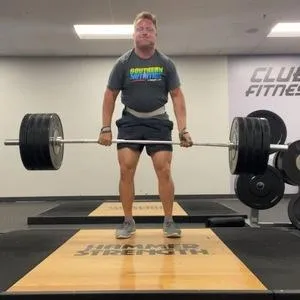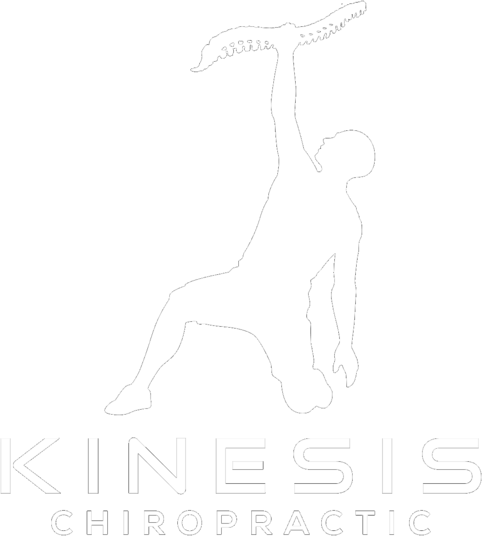Search
Disc Herniations
Conditions We Treat / Disc Herniations
31 million Americans experience low back pain due to a disc herniation every year.
If you've dealt with it in the past (or maybe even right now), you know low back pain can change your life in an instant.
Not being sure when you'll be able to enjoy life again may have crossed your mind.

What are disc herniations, and how do they become injured?
Intervertebral discs act as shock absorbers for our spine, much like pads in a vehicle; and are located in between each individual vertebrae in our spine.
Intervertebral discs are shaped like jelly donuts with a tough, fibrous outer portion known as the annulus fibrosis and a soft, gel-like inner portion called the nucleus pulposus. This combination of a more rigid exterior and softer interior allows it to distribute the forces we encounter with our everyday activities and physical exertion – all because this bendable disc absorbs the forces of physics.
Intervertebral discs absorb the impact of physical activity such as running, jumping, and more.
Disc herniations occur when there's damage to the annulus fibrosis, and/or the nucleus pulposus.
Sometimes, the outer portion of the disc tears resulting in the nucleus pulpous to leak out.
Damage to the exterior of the disc can irritate the nerves causing pain.
This is commonly seen in accidents or other traumas, but this isn't always the case.
The good thing is that the discs in our spine are a lot stronger than a jelly doughnut!
Having a disc injury doesn't mean you'll experience pain or result in a loss of function.
Disc herniations can occur naturally in the body without producing any symptoms.
Conservative care may be needed when you experience pain and a decreased ability to perform regular activities such as walking, running, working out, working, etc.
Some of the signs you'll be needing conservative care for a disc herniation are:
• Arm or leg pain
• Weakness
• Pareshesia (numb)

Factors that increase the chances of disc herniations
• Weight
• Sedentary behavior
• Genetics
• Smoking

What should you do if you suspect a disc herniation?
Addressing the musculoskeletal components and making changes to overall bodily movement becomes an imperative part of an effective treatment plan.
This isn’t to say a person with a disc herniation needs to stop all activities and engage in bedrest. This could be an undesirable course of action.
Management of a disc herniation will depend on whether the condition is acute (sudden onset) or chronic (repeatedly occurring over time).
Thankfully, with the right interventions and tools, intervertebral discs have the ability to heal –although it can be slow.
How do we treat disc herniations at Kinesis Chiropractic?
In our Davie & Weston Chiropractic office, we take a detailed history of your injury and perform a thorough examination, assess any neurological deficits to determine what best treatment suites you.
Our goal is to not only provide you with the correct diagnosis but determine the root cause of your injury and create an individualized treatment plan specifically for you.
Treatment for low back pain consists of:
• Chiropractic adjustments
• Soft tissue treatment
• Exercise rehabilitation
Frequently Asked Questions
How do I know if a chiropractor is right for me? Do I need surgery?
Many times, surgery for a disc herniation is not the best course of care. We will find the best options for you with our team of healthcare professionals.
A conservative approach often has fewer side effects than medications or injections and a faster return to normalcy than the extensive rehabilitation required after surgery. Conservative management allows a person to continue doing what they love, help slow or prevent injuries before they occur, and return to their daily living activities more quickly.
Suppose your symptoms are severely affecting your abilities to function and engage in daily living. In that case, we may co-manage your care with another specialist, such as an orthopedist or sports medicine doctor, or refer you for a surgical consult once a thorough exam has been performed
How long will it take to recover from a disc herniation?
Unfortunately, this depends. Many factors are considered, such as what level the disc herniation is located, nerve impingement present, the severity of your symptoms, and more.
Recovery can also depend on your lifestyle, including activity levels, and your body’s response to treatment. Depending on your condition, you may also need collaboration with other healthcare providers to help restore function as quickly and effectively as possible.
That’s why no two treatment plans must be exactly alike. Everyone’s body is different and will heal at different rates.
It is essential to have the right team monitoring your condition and supporting you with a comprehensive approach to conservative care.
Helping you understand your body and how it moves is an important piece of preventing future injury.

"After going to more than 4 chiropractors, 2 Gastroenterologists, 2 OBGyns, 2 general physicians, an acupuncturist and a deep tissue Massage therapist AND then having a colonoscopy, an MRI and a few CT Scans....I met Dr. Tito Torres!!
I met Dr. Tito! For the first time after 3 years, I am finally feeling 100 times better and I am on my way to being myself again with no pain! I cannot say enough how grateful I am to have met Dr. Tito. What a difference it is to not be wondering every day about what the pain really means and if it will ever go away.
What I like most about Dr. Tito is that he made no promises, he just helped me discover things about my body and myself so that I could be involved with my healing. I have my power back, and it's thanks to Dr. Tito! THANK YOU!!!!!!"
- Tanya

"I’m so glad I met Dr. Tito! I was having really bad sciatica pain and I couldn’t deadlift for months. After just several visits, my low back pain was gone.
I couldn’t be happier with the care at Kinesis Chiropractic. I highly recommend anyone in the Weston area to give him a visit!
- Jonathon
If you're experiencing severe or persistent pain, it may be time to get chiropractic care from a specialist.
Kinesis Chiropractic
Office Hours
Monday - Friday: 8 AM - 6 PM
Saturday & Sunday: Closed
Kinesis Chiropractic
Office Hours
Monday: 9am - 12pm, 3pm - 6:30pm
Tuesday: 9am - 1pm
Wednesday: 2pm- 6:30pm
Thursday: 9am - 12pm, 3pm - 6:30pm
Friday: 9am - 1pm
Saturday: Closed

